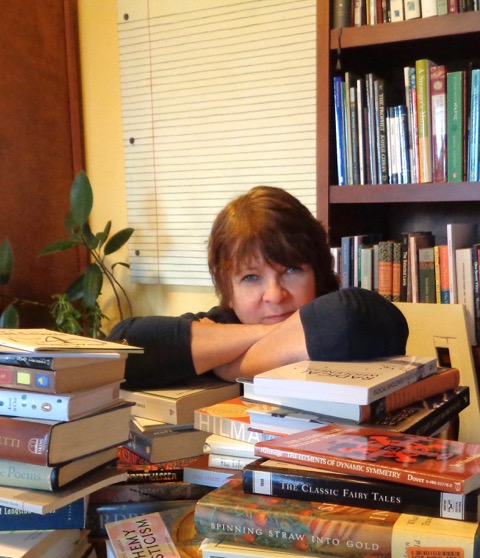Voicing the Past, Grounded in the Present
Publisher: Fordham University Press 2018
Paperback, pp. 96
ISBN: 9780823280988
Foreword by Afaa M. Weaver
[…] they drove us from our house, loaded us into the boats, the carriage, steered us into the bleach cold hall said, Women go left men go right. Then I knew the line / was about to snap. A pair of white hands plucked him off my breast. I sagged down torn, unfurled, gill-slit. And my sweet William he just […]
(From “Sucker Fish”)
Imagine that the government seizes your land. Says you have thirty days to leave or else you’ll be forcefully removed. You don’t have a choice. You’re told to take down your home or it will be burned down. Imagine that you and your community settled that land. It’s an island. It’s your home. You are part of a cooperative fishing and ship-building community. The land and sea are your resources, your livelihood, your identity. Your entire community is evicted from this land that you settled four, five generations ago because there’s this new science called eugenics that declares you unfit, unacceptable, degenerate, “feeble-minded.” Eugenics declares that you must be culled.
You and your neighbors happen to be mixed race: Sottish, Irish, Portuguese, Native American, black, and white. Mainland publications have headlined you as filthy. Filthier than dogs, lazy, criminal they say. You are seen as a problem, not a person. Nearby communities have no interest in allowing you to join them. They wonder what would happen to their rising tourism economy. Your community must scatter. An entire family of seven is institutionalized to live out the remainder of their days incarcerated, including their three-year-old William.
This is the story of Malaga Islanders, a community erased by the state of Maine in 1912 because the governor declared that Maine, “[…] ought not have such things near their front door.” To top off this extermination, graves of deceased islanders were dug up. Bodies were tumbled into five boxes and buried at the Maine School for the Feeble-Minded. The people of Malaga Island are a part of Maine’s history that has been hushed for one-hundred years.
Midden is Julia Bouwsma’s history of the people who were Malaga Island. It is poetry of identity and place; place shaped by people and people shaped by place. We see an example of this in “Interview with the Dead”:
Who were you then?
And instantly the tongue becomes the prism
of fracture, land of washed green light –
ferns, wild hops, hemlock, lichen
In this poem, the islanders become the very life-giving green of the island itself.
While writing east-coast Malaga Islanders into poetic form, forms that include: epistolary, persona, instructional, list, erasure, and narrative, Bouwsma restores a neglected grave site on her own land in the mountains of western Maine. The careful attention and introspection that she puts into restoring this gravesite, reveals the level of care and personal responsibility with which Bouwsma restores a people to history.
She approaches the work of righting gravestones and the work of writing the people of Malaga Island with caution and respect. Bouwsma is careful not to overstep. In one of her reflective epistolary poems “Dear ghosts, with a red pencil I draw a map,” she writes:
[…] Blood is a road –
the river we carry inside our skins. The dead are right beside you,
you tell me, but you will travel years to find them. What if every step I take
is a ruin, a heel-dug grave in the crusted snow, a mouth of white?
This overlapping narrative of past and present reveals how connected Bouwsma is to her own land. It’s an intimate connection that’s apparent from the beginning in Midden’s opening poem “I Walk My Road at Dusk”:
[…] The road curves toward
and away. The road spines
the stone walls. My feet stumble inside
ruts my feet have worn.
All I ever wanted was land: something to press
my fingers into, […]
Throughout Midden, as we take in the inhumanity against the people of Malaga, Bouwsma continually returns us to this well-rooted present. Like the road mentioned above, there’s a constant moving “toward and away.”
Here in “So Many Things” Bouwsma moves toward, zooms-in, to create an intimate portrait of islander Abbie Marks:
They say our family fears water; they think I am afraid
to drown. I dig clams from the flats, ocean licking
the rolled ends of my trousers, mud squelching
my toes. I chink the cabin cracks with rags. […]
{…} They will come for us. […]
Yes, bringing us back to the present allows us breathing space as we acknowledge such inhumanity. Perhaps it also serves as a reminder that erasure exists today.
Comments may be directed to Jo Freehand, Contributing Editor at: jfreehand@verizon.net


